Meaning of Philosophy:
Philosophy is the root of all knowledge. It is considered to be the mother of all arts and sciences. Fichte in his ‘Address to the German People’ observed that the art of education would never attain complete clearness in itself without philosophy: there is an interaction between the two, and either without the other is incomplete and unserviceable. John Dewey’s definition of philosophy, that it is the theory of education in its most general phases, supports the contention upheld by Fichet regarding the relation between the two. Philosophy is so deeply scattered into the wholeness of human life that Aristotle remarked, “Everyone follows out a philosophy, whether he is aware of it or not”. Human beings whatever kind they may be, cannot escape from philosophy. There is no aspect of things, animate or inanimate, natural or supernatural which falls outside the province of philosophy. Education, being a prominent life activity has been greatly influenced by philosophy. Especially the political philosophy of a nation has a profound influence on the educational processes, procedures, policies, planning, and implementation in their theoretical and practical aspects.
The term philosophy has a Greek origin. The word philosophy can be traced to the Greek word “Philosophia” which is made up of two words i.e. ‘phileo’ (love) and ‘sophia’ (wisdom). Therefore, the literal meaning of philosophy is ‘love of wisdom’. In this way, the search for wisdom or truth is called philosophy, and the man who engages himself in this search is called a philosopher. In his famous book ‘Republic’ Plato says “He who has a taste for every sort of knowledge and who is curious to learn and is never satisfied may be justly termed a philosopher.” All philosophers are considered as the seekers of wisdom or as lovers of wisdom. They are interested in the wisdom that is the whole and not a part.
Since times immemorial there have been various pursuits, for unfolding the mystery of the universe, birth and death, joy and sorrow. Various ages have produced different thoughts throwing light upon the mystic region. The ultimate truth has eluded. This eternal quest for truth lends to the origin of philosophy. It is the study of realities and general principles and the pursuit of wisdom. To be precise and definite, one may call philosophy the deep thinking and mediation that concerns itself with God, the Soul, and Nature. This concentration and deep thinking is for revealing the hidden and immoral realities of existence namely, what is the nature of life, whence human being has come and what will be his final destination, how does external nature affect human life, how this cosmos operates, how do the heavenly bodies affect human life, is there any life after this, what are heaven and hell? All these are the subjects and topics of philosophical thinking and ultimate realization.
Philosophy has been defined by various scholars from various angles. The following are some of the important definitions.
Coleridge defined philosophy as the “Science of Sciences”.
Ciscero called it as “the mother of all arts,” and “the true medicine of the mind.”
R. W. Sellars defined philosophy as a persistent attempt to give insight into the nature of the world and of ourselves by means of systematic reflection.”
Bertrand Russell defined philosophy like other studies, aims primarily at knowledge.
According to Carlis Lamont, “Philosophy is the tenacious attempt to reasoning men to think through the most fundamental issues of life, to reach reasonable conclusions on first and last things to suggest worthwhile goals than can command the loyalty of individuals and groups.”
Henderson and his colleagues have said, “Philosophy is a rigorous, disciplined, and guarded analysis of some most difficult problems which man has ever faced.”
Philosophy has also been defined as an attempt to explain and appreciate life as a whole. A philosopher, therefore, has the chief aim of life and action, in word and in peace meal but always takes them as a systematic whole. The outlook of a philosopher is, therefore, far wide and comprehensive. In Plato’s definition, “the philosopher can be said to be a lover, not of a part of wisdom only, but of the whole.” Asked about the true philosophers, Socrates replied that the true philosopher is one who loves a glance of the truth. To Plato, the true philosophers are those who are lovers of the truth.
Some people think that philosophy is the revelation of some truth through everyday experience. A deep study reveals the fact that a man undergoes various kinds of experiences throughout his long life from birth to death. These experiences provide him with new knowledge. Consequently, he develops a capacity to discriminate between right and wrong, proper and improper, relevant and irrelevant. In a sense, each of us does this search work in some way or the other to some lesser or greater extent. Thus each of us becomes a philosopher at some time or the other. As this search for truth is philosophy, the great German Philosopher Schopenl rightly remarks “Every man is born metaphysician.” In the words of Huxley “Men live in accordance with their philosophy of life, their conception of the world. This is true even of the most thoughtless. It is impossible to live without metaphysics.”
The above discussion leads us to conclude that every man is engaged in the search of truth to understand well the realities of things and occurrences. Through such thinking, he gets knowledge out of which he deduces a set of principles for his own use, forms a set of ideals and values, and begins to live in them often implicitly. In other words, it connotes ideals that a man wants to live up to and standards or values which he wants to achieve.
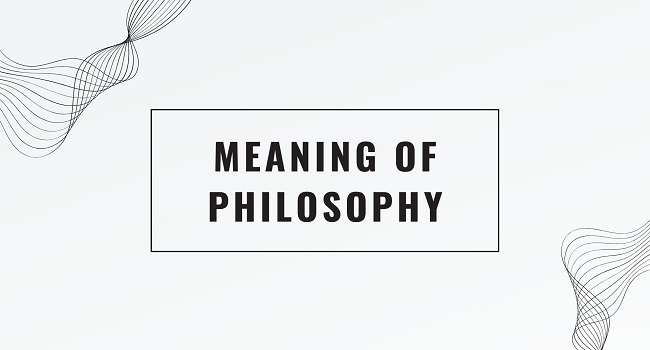


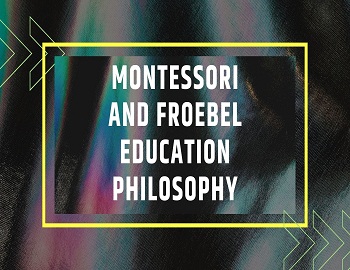
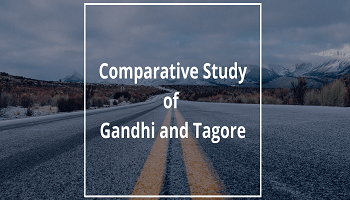
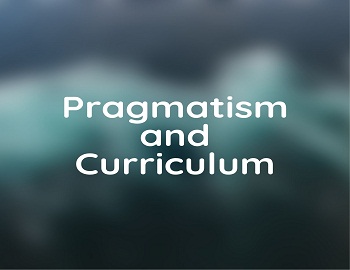

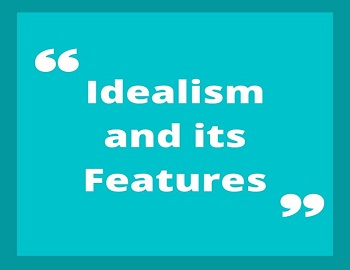

Comments (No)